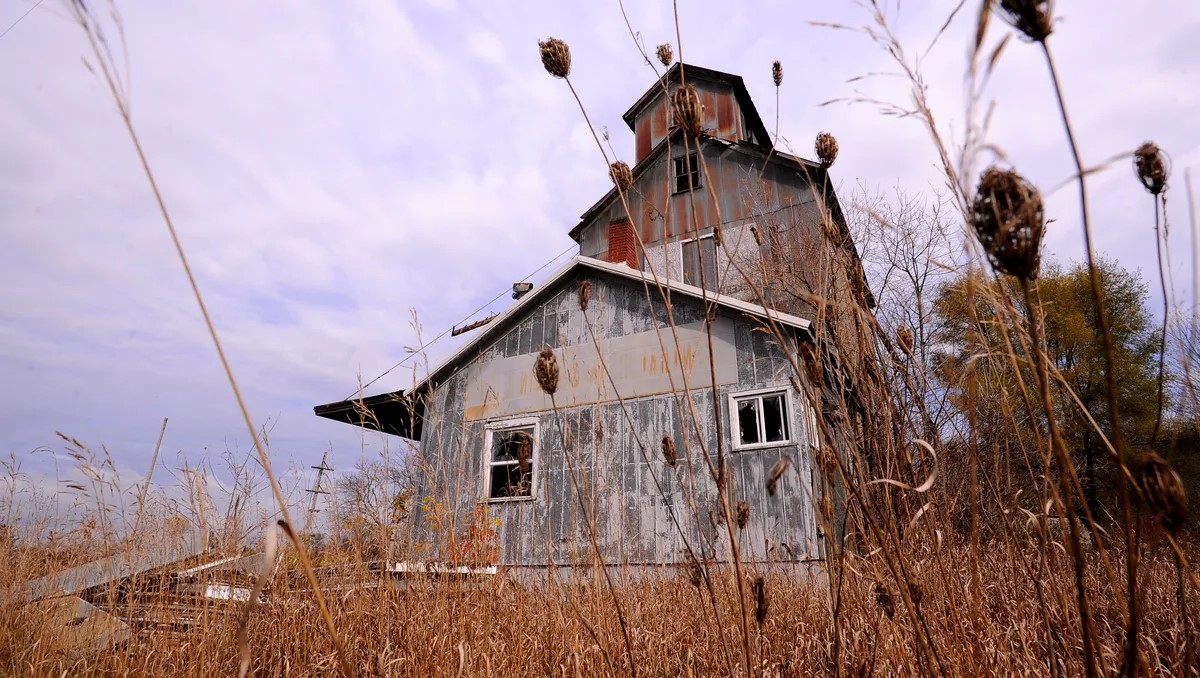Lost Lumber Towns Of Michigan’s Lower Peninsula

Have you ever wondered about the lost lumber towns of Michigan's Lower Peninsula? These once-thriving communities played a crucial role in the state's history. During the late 19th and early 20th centuries, Michigan's vast forests attracted loggers and settlers, leading to the rapid growth of these towns. However, as the timber industry declined, many of these bustling hubs faded into obscurity. Today, remnants of these towns offer a glimpse into a bygone era, with abandoned buildings and overgrown streets telling stories of hard work and resilience. Join us as we explore the rich history and lasting legacy of these forgotten places.
Forgotten Lumber Towns of Michigan's Lower Peninsula
Michigan's Lower Peninsula once thrived with bustling lumber towns. These places, now mostly forgotten, played a crucial role in the state's history. Let's explore some of these lost lumber towns.
1. Pere Cheney
Pere Cheney, founded in 1874, was once a booming lumber town. Located in Crawford County, it had a sawmill, general store, and post office. However, a diphtheria outbreak in the 1890s decimated the population. By the early 20th century, it became a ghost town.
2. Singapore
Singapore, Michigan, established in the 1830s, was a thriving port town on Lake Michigan. It supplied lumber to rebuild Chicago after the Great Fire of 1871. Unfortunately, deforestation led to sand dunes engulfing the town, leaving it buried and abandoned by 1875.
3. Alcona
Alcona, once a bustling lumber town in Alcona County, thrived in the late 19th century. It had a sawmill, school, and several businesses. However, the depletion of timber resources led to its decline. By the early 1900s, Alcona had faded into obscurity.
4. Aral
Aral, located near Sleeping Bear Dunes, was a lumber town founded in the 1880s. It had a sawmill, boarding house, and general store. The town's decline began when the timber ran out. By the 1920s, Aral was abandoned, leaving only remnants of its past.
5. Deward
Deward, established in 1901 in Crawford County, was a company town for the Michigan Lumber Company. It had a sawmill, company store, and housing for workers. The town thrived until the timber was exhausted. By 1912, Deward was deserted, with only ruins remaining.
6. Au Sable
Au Sable, located on the banks of the Au Sable River, was a prominent lumber town in the late 19th century. It had sawmills, hotels, and a bustling downtown. A devastating fire in 1911 destroyed much of the town. Today, only a few structures hint at its former glory.
7. Luzerne
Luzerne, in Oscoda County, was a lumber town that flourished in the late 1800s. It had a sawmill, school, and several businesses. The depletion of timber resources led to its decline. By the early 20th century, Luzerne had become a shadow of its former self.
8. Rexton
Rexton, located in Mackinac County, was a lumber town established in the late 1800s. It had a sawmill, general store, and post office. The town's decline began when the timber was exhausted. By the 1920s, Rexton was largely abandoned, with only a few buildings remaining.
9. Emery City
Emery City, in Clare County, was a bustling lumber town in the late 19th century. It had a sawmill, school, and several businesses. The depletion of timber resources led to its decline. By the early 1900s, Emery City had faded into obscurity.
10. Redridge
Redridge, located in Houghton County, was a lumber town that thrived in the late 1800s. It had a sawmill, company store, and housing for workers. The town's decline began when the timber ran out. By the early 20th century, Redridge was largely abandoned, with only ruins remaining.
Rediscovering Michigan's Forgotten Lumber Towns
Michigan's Lower Peninsula holds hidden gems in its lost lumber towns. These towns, once bustling with activity, now offer a unique glimpse into the past. Exploring places like Lumberton, Deward, and Arden reveals stories of hard work, community, and the rise and fall of the lumber industry.
Visiting these towns isn't just about history. It's about connecting with nature, enjoying scenic landscapes, and appreciating the resilience of the people who lived there. Whether you're a history buff or just love a good adventure, these forgotten towns have something special to offer.
So next time you're planning a trip, consider stepping off the beaten path. Discover the charm and history of Michigan's lost lumber towns. You might find more than just old buildings; you might find a piece of yourself.

